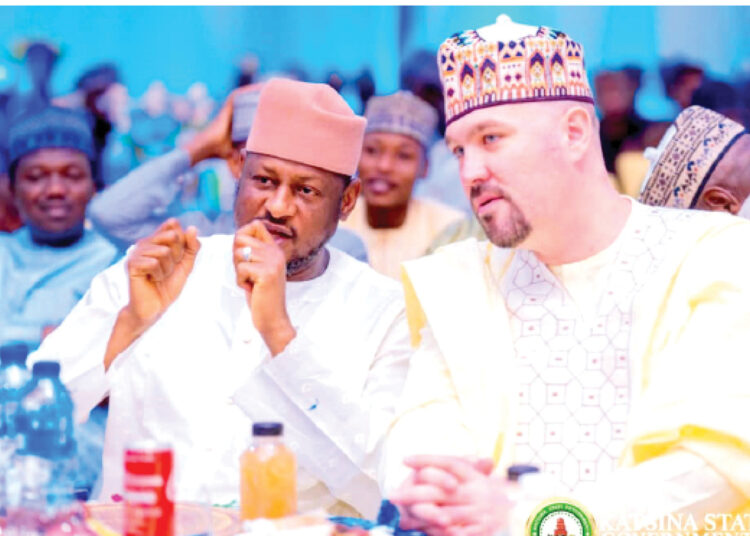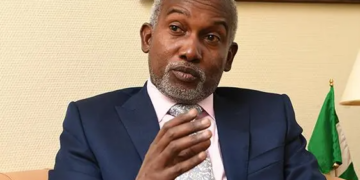Under the blazing sun of northern Nigeria, hooves thunder against the earth as thousands of horsemen, clad in vibrant robes and turbans, parade through Katsina and Daura ancient streets. The air thrums with the beat of kalangu, algaita drums and the cheers of crowds gathered to witness a spectacle not seen in decades: the full glory of Hawan Sallah, a cultural jewel nearly lost to time.
This year, however, the festival carried more than just local significance. Ambassadors from 10 nations—Bulgaria, Belgium, Finland, Portugal, Mexico, and beyond—stood shoulder-to-shoulder with Katsina’s elders, traditional rulers and government functionaries, their presence a powerful rebuttal to critics who once labeled the state “unsafe.” For Governor Dikko Umaru Radda, the moment symbolized a dual triumph: the revival of Katsina’s heritage and the restoration of its global reputation as a Home of Hospitality.
Hawan Sallah, a post-Eid procession dating to the 14th-century in Katsina Kingdom, once drew visitors from across West Africa and beyond. By the 2010s, however, economic hardship and insecurity had reduced it to a skeletal event. “My grandparents spoke of its grandeur, but I’d never seen it,” lamented 28-year-old local artisan Aisha Usman.
Governor Radda, a traditional title holder in the legendary Katsina Emirate. As the Gwagwaren Katsina. He made revival of cultural heritage a cornerstone of his 2023 campaign. Collaborating with royal custodians like the Emir of Katsina, Alhaji Abdulmumini Kabir Usman and the Emir of Daura, Alhaji Faruk Umari Faruk, the administration rebuilt the event piece by piece. Artisans were commissioned to recreate intricate regalia; horsemen from rural communities trained for months; and media campaigns reignited public interest.
Having said that, the 2024 Hawan Sallah stunned skeptics, drawing not less than 50,000 sons and daughters of Katsina both at home and in the diaspora. But 2025 marked a historic leap, 10 ambassadors,.
including the EU’s Gautier Mignot and Mexico’s Juan Alfredo Miranda Ortiz, among other tourism experts and investors arrived to witness the spectacle. “This isn’t just a festival—it’s diplomacy in motion,” said Belgian Ambassador Pieter Leenknegt.
The ambassadors’ presence answered a lingering question: How could a state once plagued by insecurity host such an event? Critics had pointed to media reports questioning Katsina’s safety, but Governor Radda countered, “No nation risks its envoys lightly. Their trust in us speaks louder than headlines.” In Katsina, our excitement knows no boundary to have host such a historic event.
Community-led security initiatives played a key role in this regard. The C-Watch, originally formed to protect villages, now partner with police to safeguard cultural sites. At this year’s festival, security drones buzzed overhead while children waved the Nigeria flags—a stark contrast to past anxieties.
“Fear ruled us before,” admitted farmer Musa Ibrahim from Funtua. “Now, seeing foreigners celebrate with us? It heals.”
Another thrilled experience at the recent Sallah fiestas is the economic ripple effect. Artisans like Usman Baba who crafts traditional kola drums, report a 300% surge in demand. “Before, I sold maybe two drums a month. Now, orders come from the nooks and crannies of Katsina, even Europe,” he said.
Hotels in Katsina City recorded high occupancy, while food vendors near the Emir’s palace and the old government House earned a month’s income in just two days.
At the Katsina Equestrian Training Center, 19-year-old Hassan Sani—once unemployed—now teaches horseback artistry. “My grandfather was a horseman. Now I’m paid to keep his legacy alive,” he grinned.
According to the Government’s guided mouths, tourism revenue has injected over N500 million into the state the second quarter of 2023 and now, with projections doubling next year. I was reliably intimated that plans are underway to expand the festival into a week-long cultural expo featuring craft fairs and academic panels.
Back to Daura, Hawan Magajiya where history meets the future. Daura is Nigeria’s oldest emirate, Governor Radda doubled down on cultural preservation at the Hawan Magajiya fiesta. Before ambassadors and 22 district heads, he pledged to “defend the dignity of our emirates” while wooing investors to Katsina’s agribusiness, commerce and education sectors.
The Emir of Katsina , HRH Alhaji Abdulmumini Kabir Usman at the Hawan Bariki praised Radda infrastructural strides. Notably, the Katsina-Dutsinma Road and Kofar Kaura Roundabout. “Leadership isn’t blueprints—it’s the laughter of children biking safely,” the Emir remarked.
Moving forward, the festivals’ success has drawn international interest. Finland’s Ambassador Sandra Selin called the events “a masterclass in cultural storytelling,” while Bulgaria’s Yanko Yordanov noted, “Katsina’s hospitality rivals its heritage.” UNESCO is now considering designating Hawan Sallah as an Intangible Cultural Heritage—a move that could unlock global funding in the years to come.
Governor Radda, however, remains focused on sustainability. “Climate change threatens open-air events like ours,” he admitted. “But our ancestors adapted to harsh lands; so will we.”
Katsina’s story transcends tradition—it’s a lesson in resilience. By reviving Hawan Sallah, Governor Radda didn’t just resurrect a festival; he rekindled communal pride, spurred economic growth, and rebuilt international trust.
As the EU’s Mignot observed, “Culture isn’t a relic here. It’s the heartbeat of progress.”
For Katsina’s youth, the impact is visceral. At this year’s procession, 10-year-old Fatima Suleiman sat atop her father’s shoulders, eyes wide as horsemen paraded past. “I want to ride like that someday,” she whispered. In a state once overshadowed by strife, her words echo a renewed hope: that heritage, when honoured, can gallop boldly into the future.
The Hawan Bariki and Hawan Magajiya fiestas in Katsina and Daura respectively spurred excitement and thrilling moments with the historic participation of 10 global envoys, over 50,000 attendees and tourism experts from within and outside Katsina and Nigeria. Without iota of doubt, Katsina’s cultural heritage is getting a new shape under Governor Radda whom lovers and admirers of progress and development are regarded as Future Builder.
– Ibrahim Kaula Mohammed, a Chief Press Secretary to the Governor of Katsina State
We’ve got the edge. Get real-time reports, breaking scoops, and exclusive angles delivered straight to your phone. Don’t settle for stale news. Join LEADERSHIP NEWS on WhatsApp for 24/7 updates →
Join Our WhatsApp Channel










